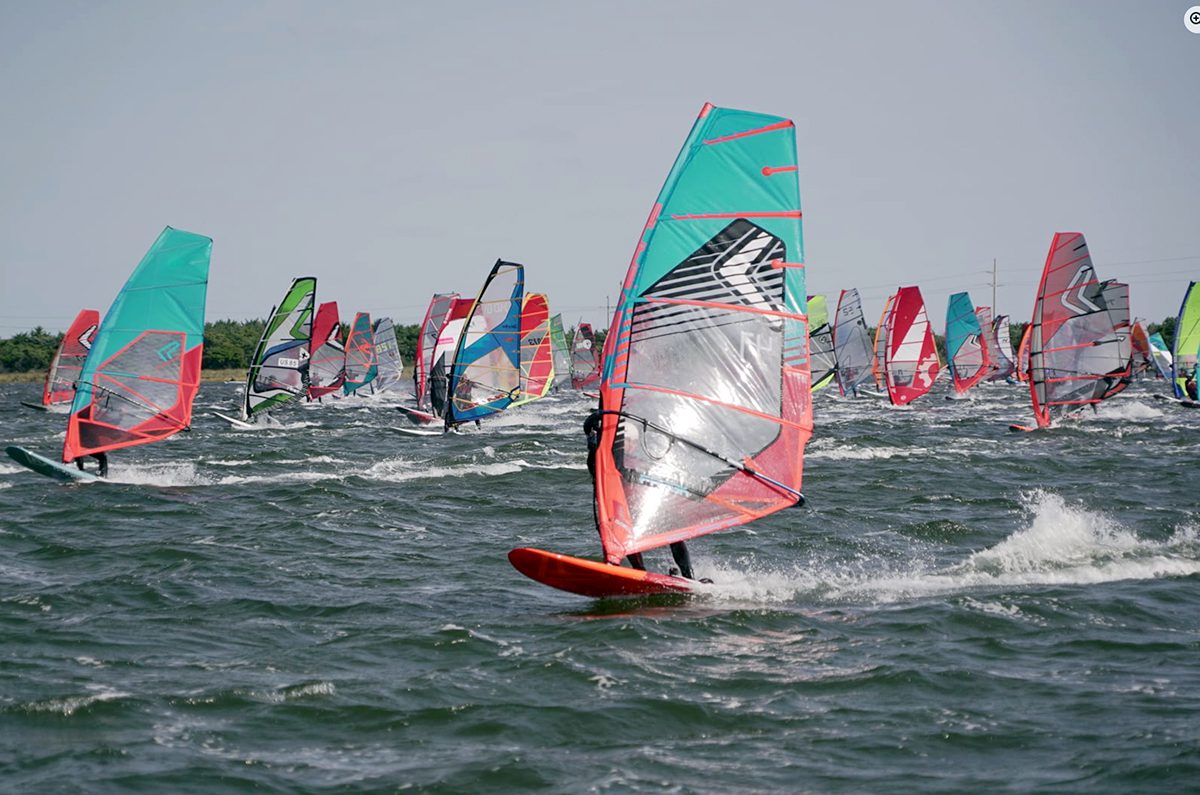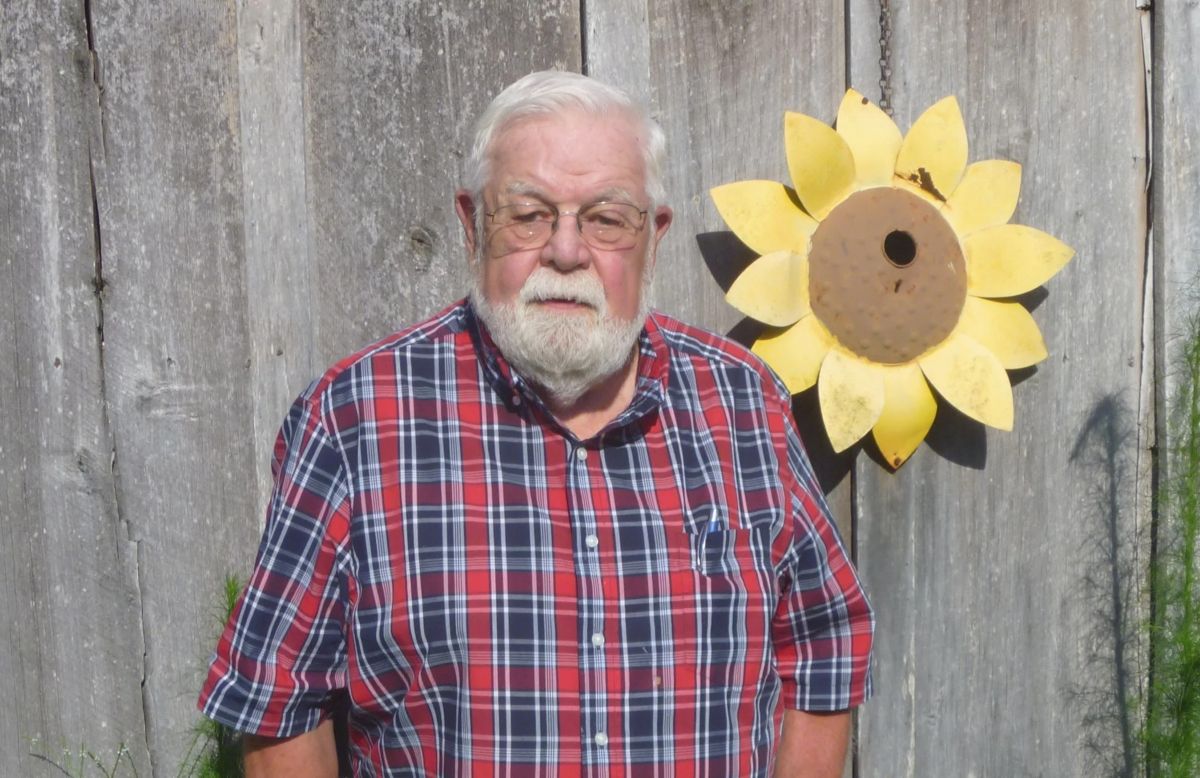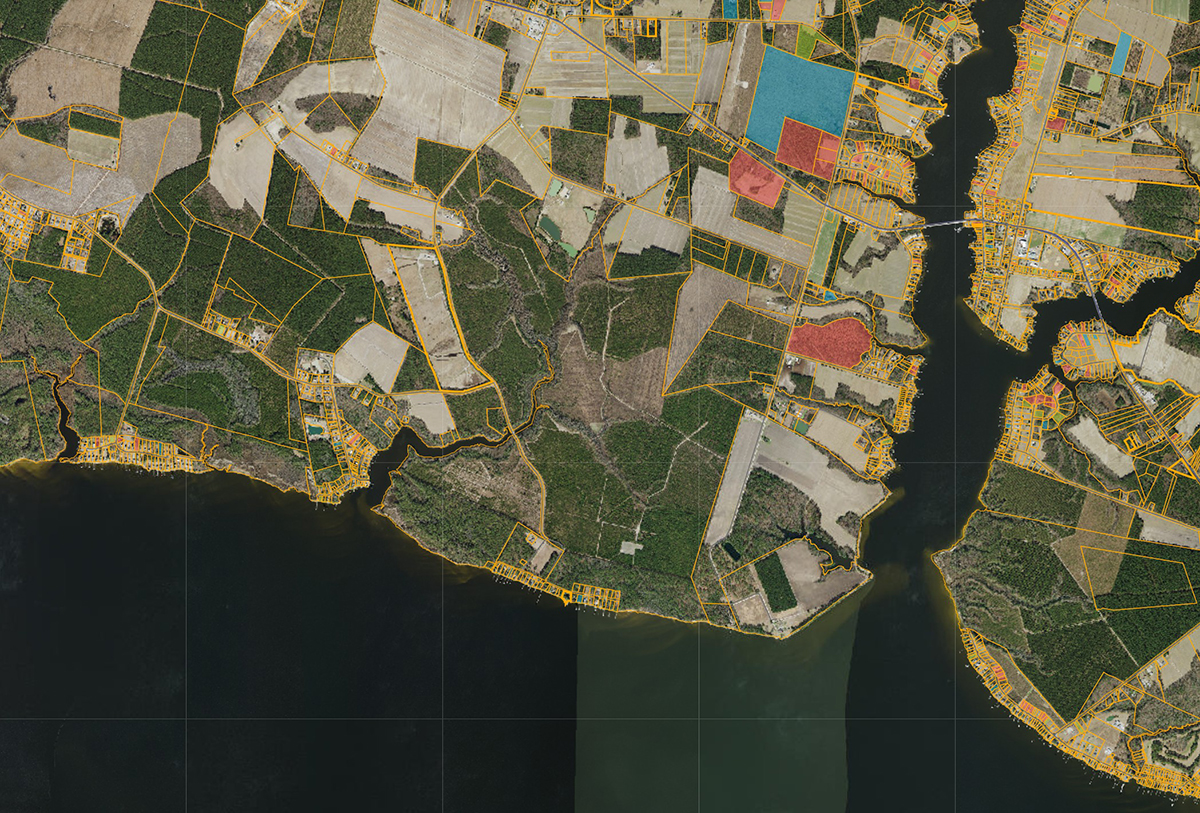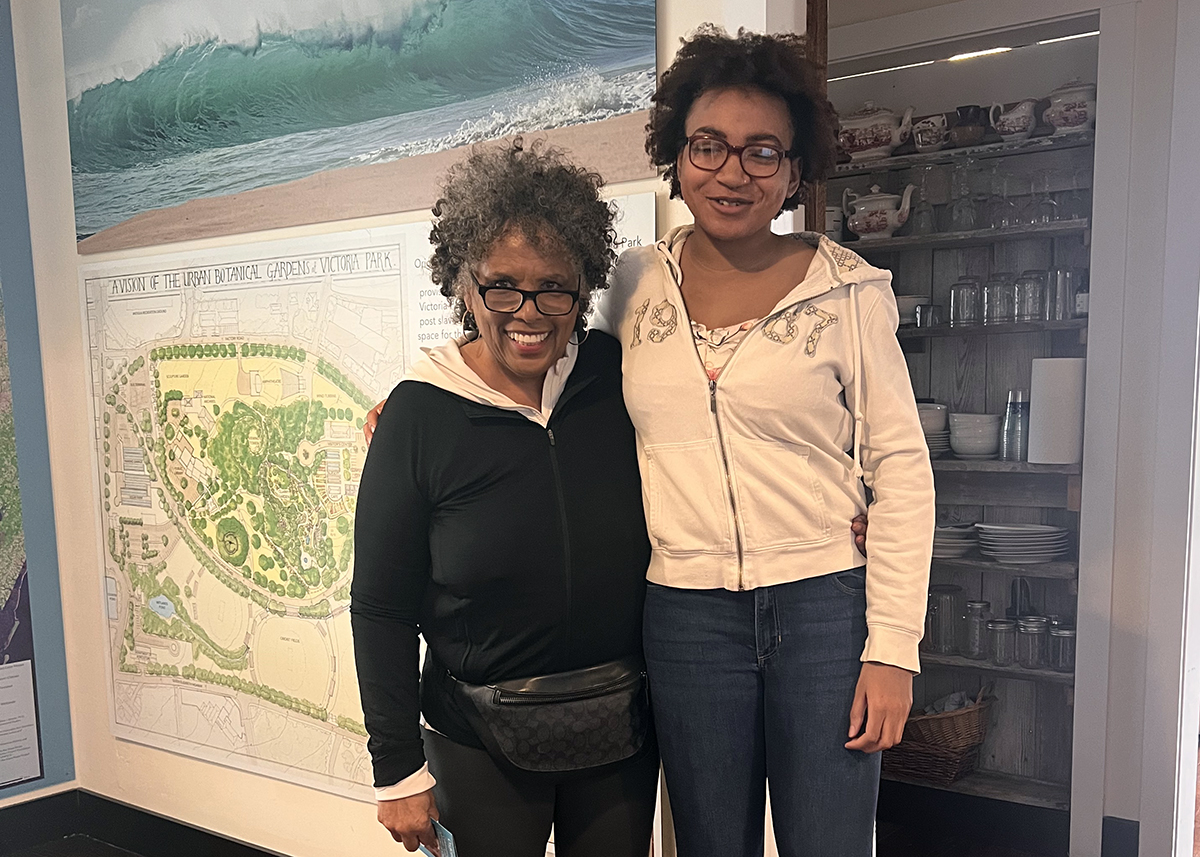
BUXTON – Just north of Cape Hatteras, businesses along a small stretch of soundside beach colloquially known as Canadian Hole have become a microcosm and barometer of a newly fraught international relationship.
Windsurfers from Canada have reliably flocked to the Outer Banks since the 1980s, and they were later joined by kiteboarders when that sport took off in the 1990s. But the Trump administration’s recent threats to annex the nation’s northern neighbor, followed by the U.S. imposing tariffs on trade, have triggered a backlash among our otherwise would-be Canadian visitors.
Supporter Spotlight
U.S. Customs and Border Protection data shows that visitors crossing the Canadian border into the U.S. dropped 12.5% in February and 18% in March, according to an April 18 NBC News report. In 2023, about 20.7 million visitors from Canada visited the U.S.
Although there have been cancellations, local watersports shops say that plenty of Canadians are still visiting the Outer Banks because of its renowned conditions for windsurfing and kiteboarding.
With spring bringing warmer temperatures and a nice southwest wind, the northern watersport enthusiasts are starting to arrive on the Outer Banks for the season.
“I’ve put up a Canadian and a U.S. flag,” said Brian Klauser, owner of Ocean Air Sports in Avon.
Klauser said he had received “tremendous feedback” from his regulars.
Supporter Spotlight
“All of my customers are repeat customers. You can set your watch to it,” he told Coastal Review.
And, as Klauser noted, these visitors are dedicated.
“They’re not just coming for a week,” he said. “They’re coming for two to eight weeks, because they love it here.”
Pamlico Sound’s Canadian Hole, a watersports destination between Avon and Buxton on Hatteras Island, is often referred to as the Haulover Day Use Area. With its shallow, wide-open water, mild weather and windy conditions, the spot has earned a reputation among enthusiasts, along with some other Outer Banks beaches, as the premier windsurfing and kiteboarding destination on the East Coast.
All of Hatteras and Ocracoke islands are within the Cape Hatteras National Seashore.
“We get a lot of Canadians in the shop and there’s a lot of return folks we talk to,” Chris Rutledge, a salesman at REAL Watersports in Waves, a Hatteras Island village north of Avon, told Coastal Review. “It’s probably down a little bit, but I’m seeing a lot of people down in Canadian Hole.”
Any kiteboarders and windsurfers from northern climates who may still have snow on the ground appreciate that spring is a great time of the year on Hatteras Island to enjoy their sport, he said. Those conditions remain favorable into fall.
“This area is so special,” Rutledge said. There’s plenty of unobstructed space in the sound to ride, or to catch waves in the ocean, he explained, yet the spot is smaller and less crowded than other destinations.
Despite that difference — and despite the unpredictable tariff-wielding elephant raging in the background — politics is sidestepped by businesses here as much as possible.
“We appreciate our Canadian customers,” said Stacey Saunders, the general manager of Frisco Woods Campground on Hatteras Island. She emphasized in a recent interview with Coastal Review that the business tries to avoid anything political, but she has heard some outspoken opinions from even the campground’s most loyal Canadian customers.
“We believe in your right to free speech,” she said in a comment directed specifically to Canadians and the right to express their political opinions, while she, herself, wanted to avoid politics.
Numerous Canadian customers have blamed politics or a sense of feeling unsafe for deciding not to come back to the Outer Banks, said Saunders. She cited a recent email as an example.
“I’m sorry to inform you we wish to cancel our May camping reservation due to Mr. Trump,” explained the author of an email that she read aloud. “We will probably return in four years when Mr. Trump is president no longer.”
Saunders said that, so far, there had been only a “moderate” number of cancellations from Canadians, and about 80% have been from repeat customers.
Still, she noted, sites reserved for June and July mostly by windsurfers and kiters are not canceling. The campground, which is celebrating its 50th anniversary in 2025, has a large waterfront launching area that makes it very popular with these visitors.
“They’re very loyal and have been here for years,” she said.
One notable cancellation was a “caravan” of Canadians who had reserved 23 campsites, which equals about 60 people, she said.
“We’ve also lost store revenue,” she added, “because if they’re not here, they’re not purchasing anything.”
But looking on the bright side, Saunders said that the canceled reservations open more sites on the soundside – and potentially for new customers.
An April 10 post on Reddit by ParkingKnowledge6105, said that his group of 25 Canadians, who have traveled to Cape Hatteras for about 30 years for a monthlong vacation, have all canceled.
“It is hard to underplay how deeply offensive the Trump 51st state bs has been. Or the lies about fentanyl or balance of commerce,” according to the post. “You guys have no idea how pissed off Canadians are , and dismayed by how many still support Trump. A lifelong friendship was thrown under the bus.”
Keith Croghan, owner of The Sea Monkey Lodge & Kite School on Ocracoke Island, said the island always has its share of visiting windsurfers and kiteboarders, although not as many at Hatteras Island.
And not yet this year.
“I haven’t seen hide nor hair of Canadians,” he recently told Coastal Review. “So the impact on us is even greater.”
Ocracoke, a small island on the far-south end of the Outer Banks, is — more than most — dependent on tourism revenue.
‘I haven’t seen hide nor hair of Canadians.’
— Keith Croghan, The Sea Monkey Lodge & Kite School, Ocracoke Island
“Yeah, we really feel it when people don’t show up,” said Croghan, who has run the The Sea Monkey Lodge & Kite School for 15 years.
“I would like to consider Ocracoke a sanctuary,” he added. “If any Canadians feel ostracized by all this, tell them they’re welcome to come down and visit our special little island here on the Republic of Ocracoke.”
Lee Nettles, executive director of the Outer Banks Visitors Bureau, also prefers to look beyond the current gloom of uncertain times.
“We, of course, welcome international guests, and we want to continue welcoming international guests,” he told Coastal Review. “But from the last statistics that I saw, Canadian visitors are less than 1% of our overall visitation. So in terms of the real business impact, it remains to be seen, but I don’t expect it to be great.”
Most Outer Banks visitors drive from Virginia, North Carolina, Ohio, Pennsylvania, New York and other northeastern states. And, he added, tourists from Canada represented about 50% of total international visitation.
As the 2020 pandemic showed, Nettles said, the Outer Banks’ reputation for its natural environment and wide-open beaches is sought out as a refuge during stressful periods. That and being an affordable drive-to destination has somewhat sheltered the barrier islands from the same shocks other destinations may experience.
“Everybody’s calling for a soft year,” Nettles said about other tourism areas in the state, “and it seems like we’re in better shape than a lot of folks.”
Over the years, Dare County has proven to possess a remarkable ability to not only recover from various shocks, but also to come back strong.
In 2023, the most recent available data, Dare’s total visitor spending was $2.15 billion, about 9% higher than the previous year. State taxes were $70.4 million and the local taxes were $77.9 million, totaling $148 million for the year. Combined with the visitor spending, the total of $3,891 per capita is the highest of any county in North Carolina.
As far threats of layoffs or funding decreases in the national parks and refuges, Nettles said he doesn’t yet know details and won’t speculate on impacts except to say he has confidence in the management.
“Obviously the national and state parks and our refuges are hugely important tourism assets and are greatly valued by our visitors,” he said.
The Outer Banks tourism-based economy has survived a series of human-made and natural disasters, and not just hurricanes.
“I think the storms come in different forms,” Nettles said.
“We’re no stranger to challenges. We’ve had wildfires, road closures, bridge closures. We’ve had recessions, we’ve had government shutdowns, and COVID,” he said. “All of which to say, tourism has been real resilient despite natural and man-made challenges.”







